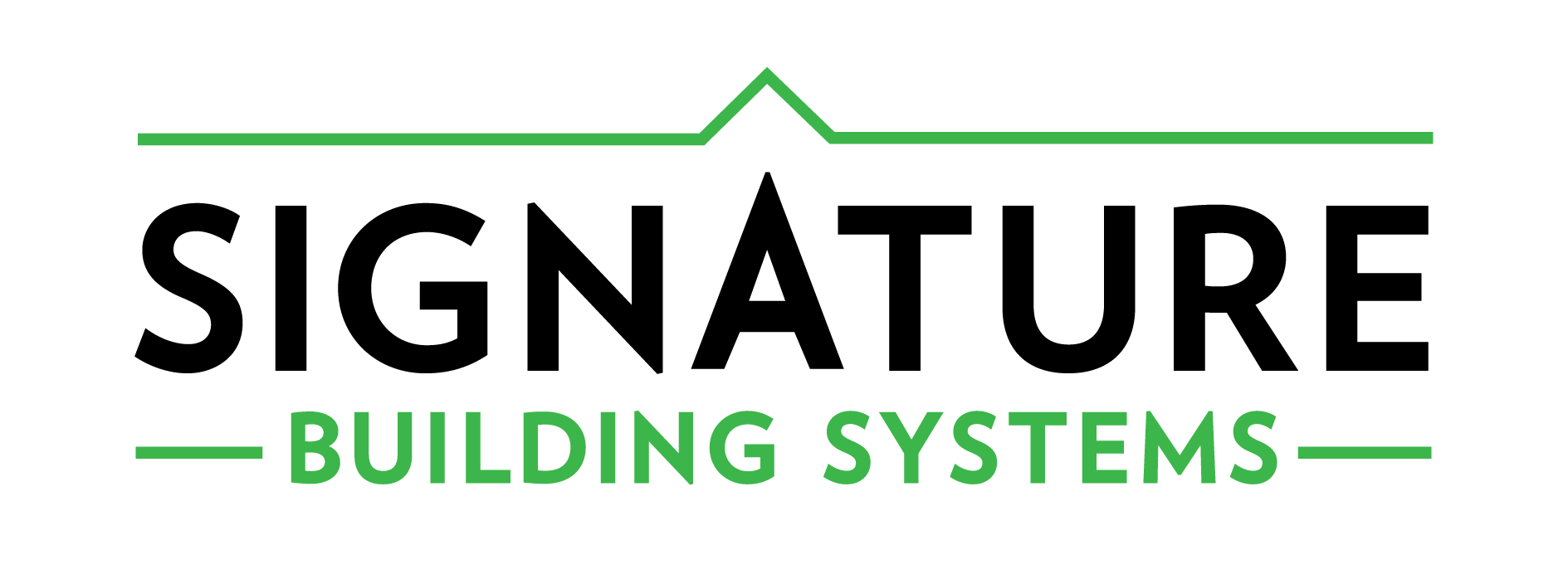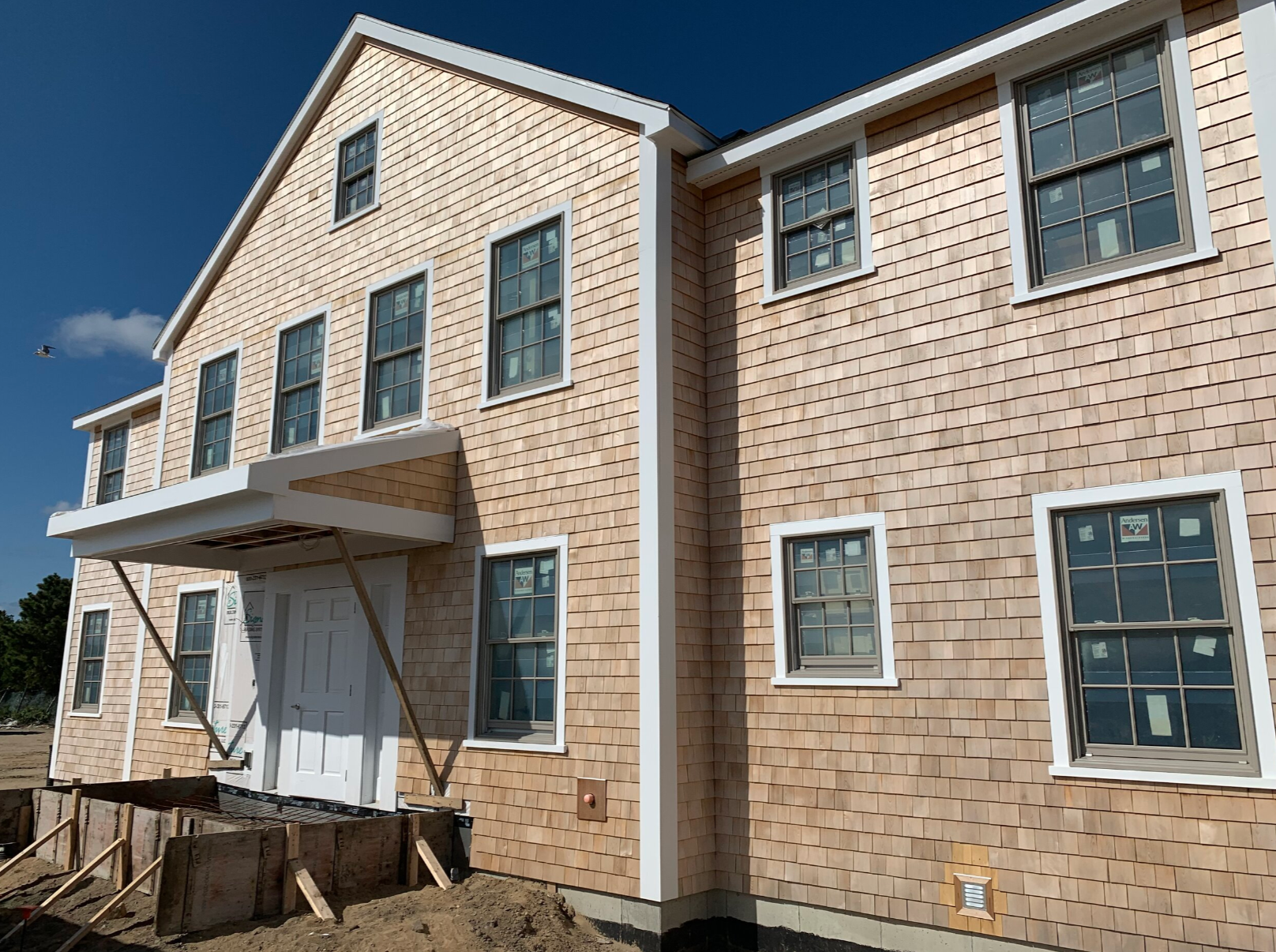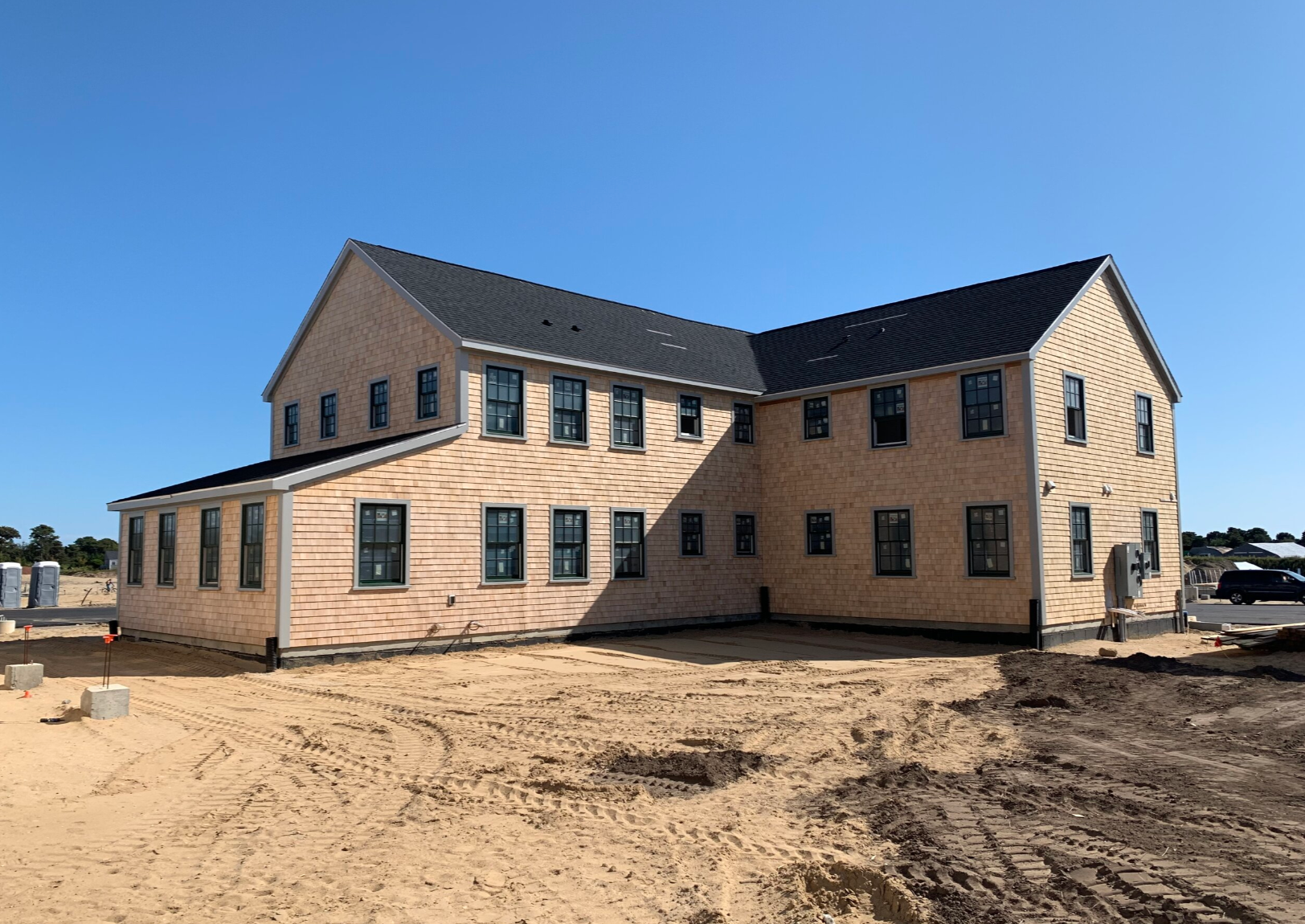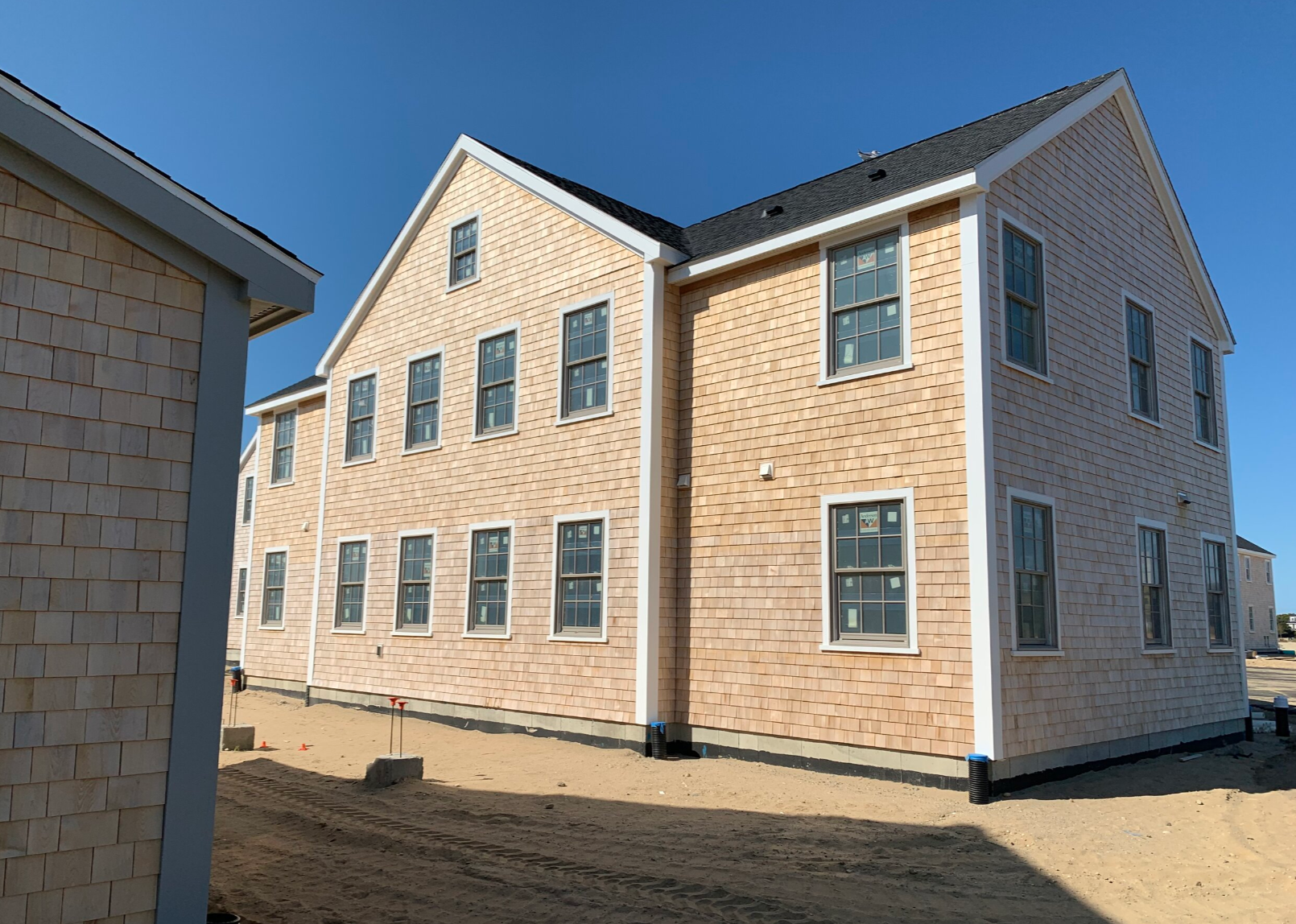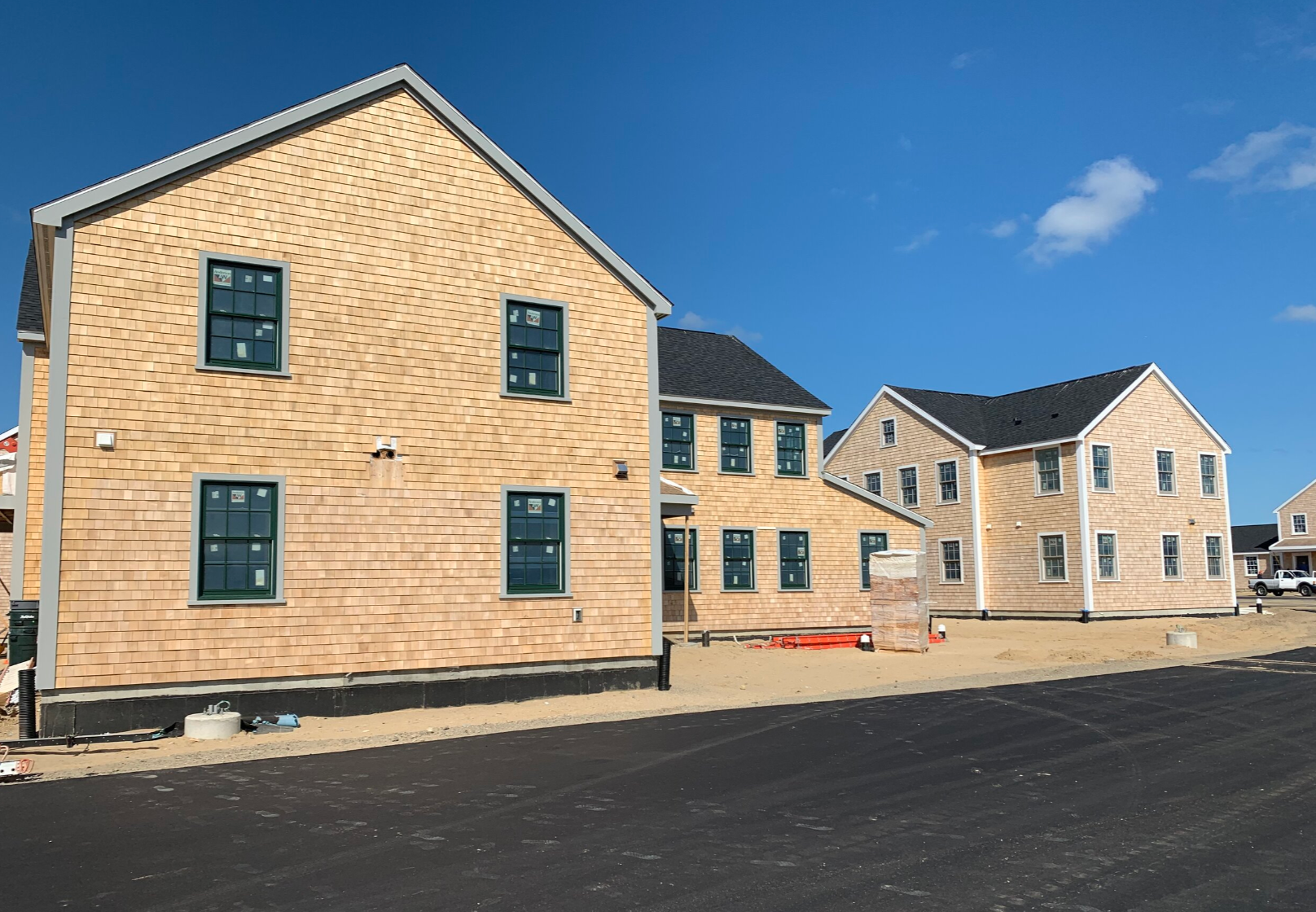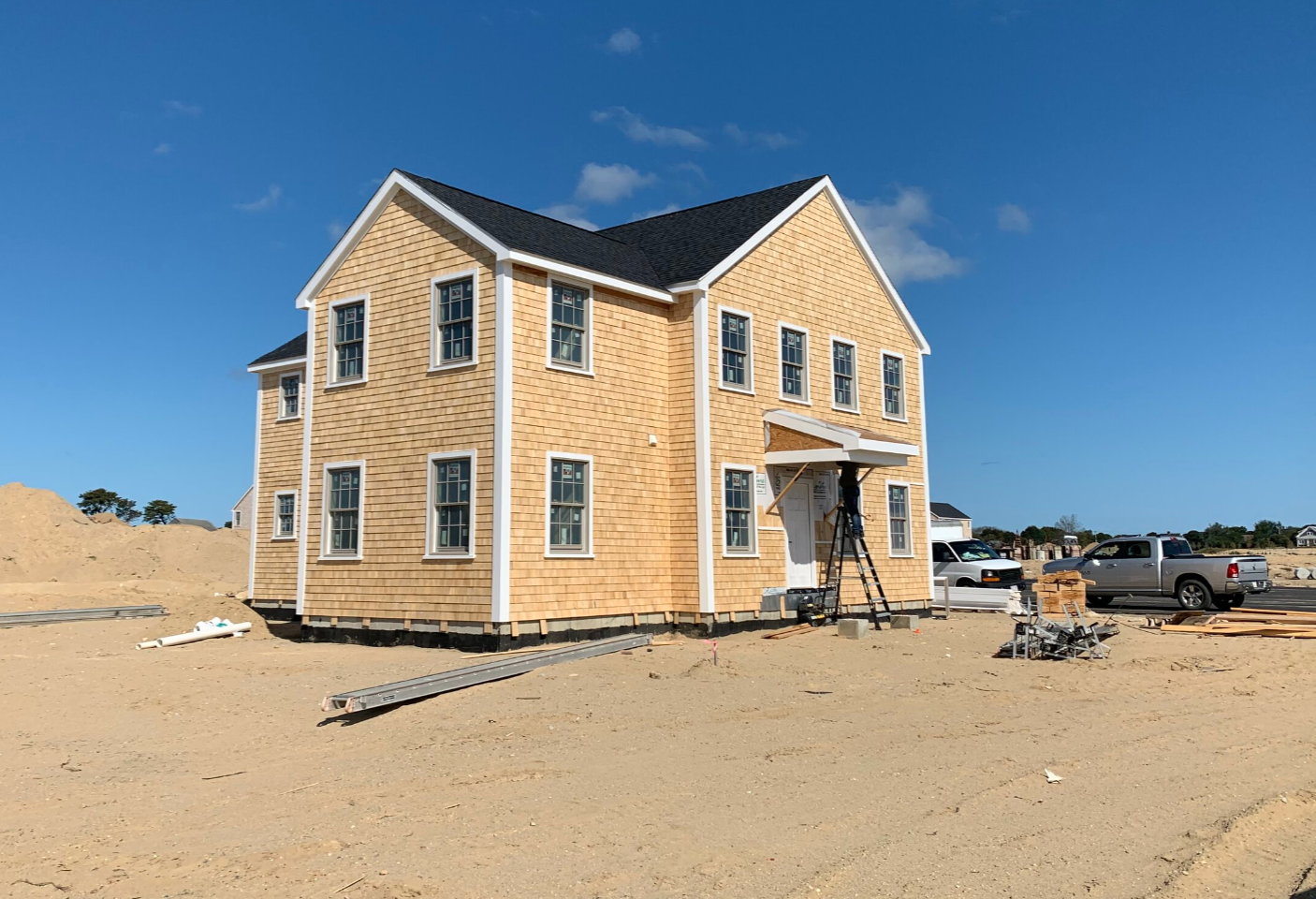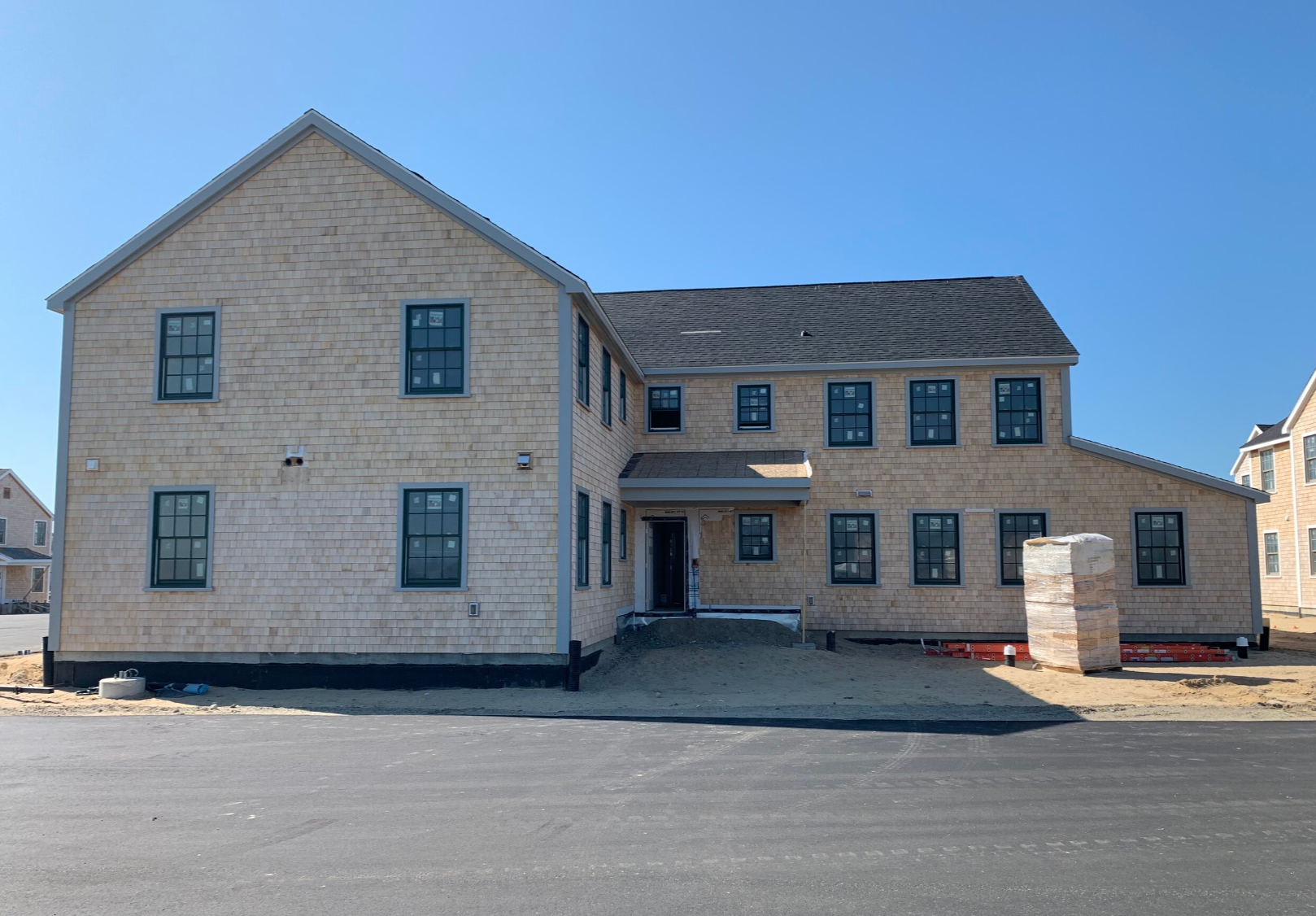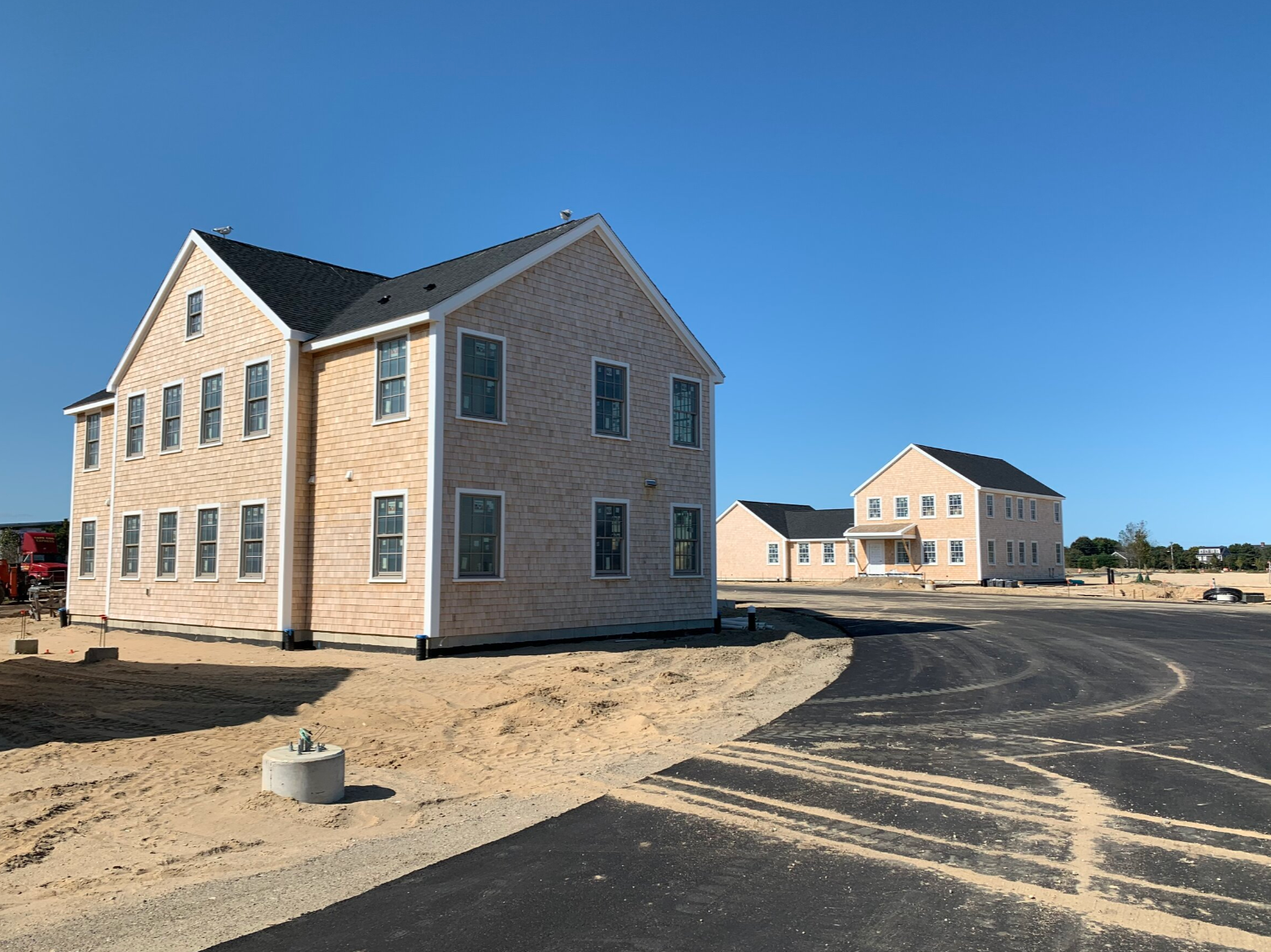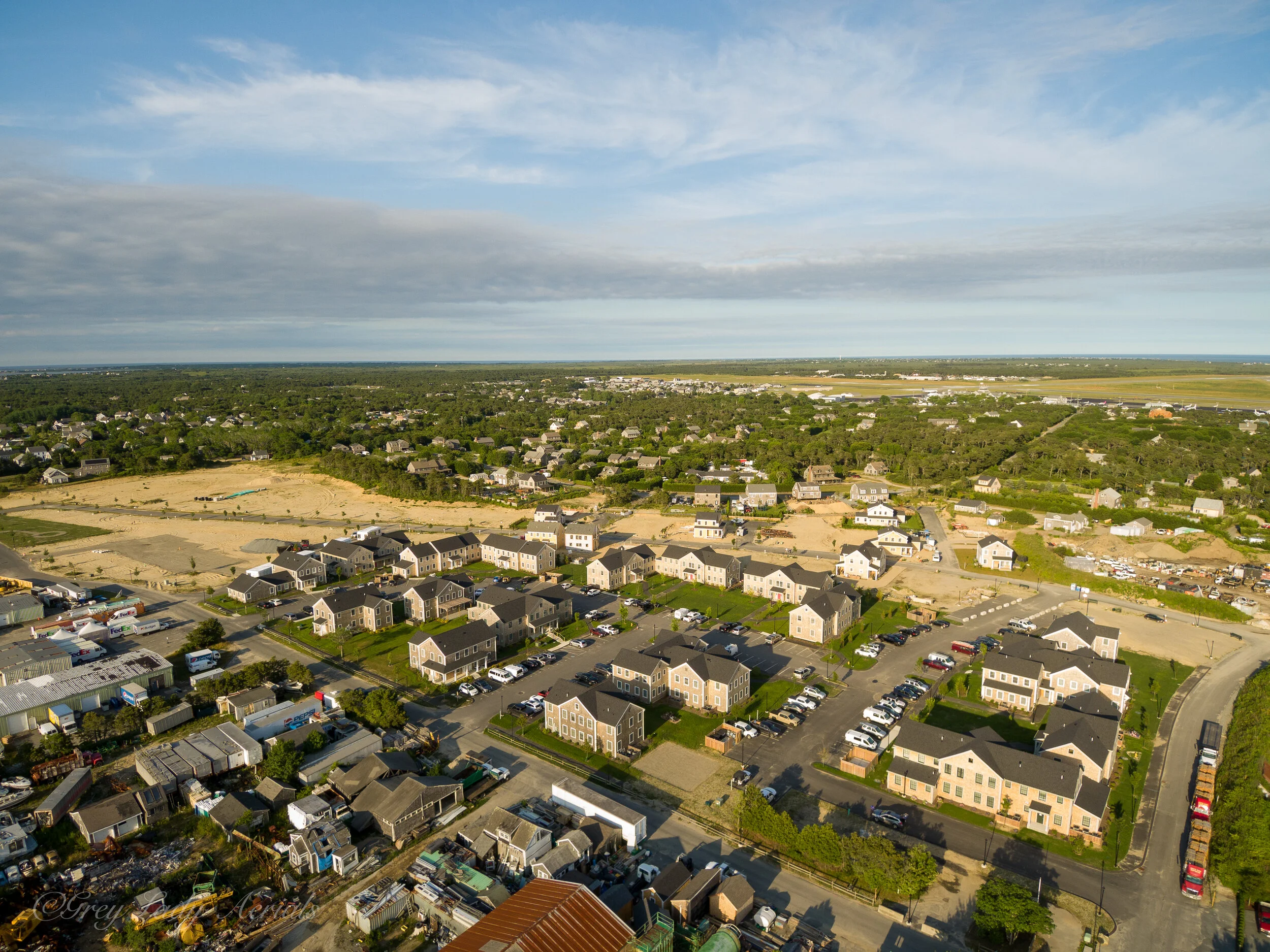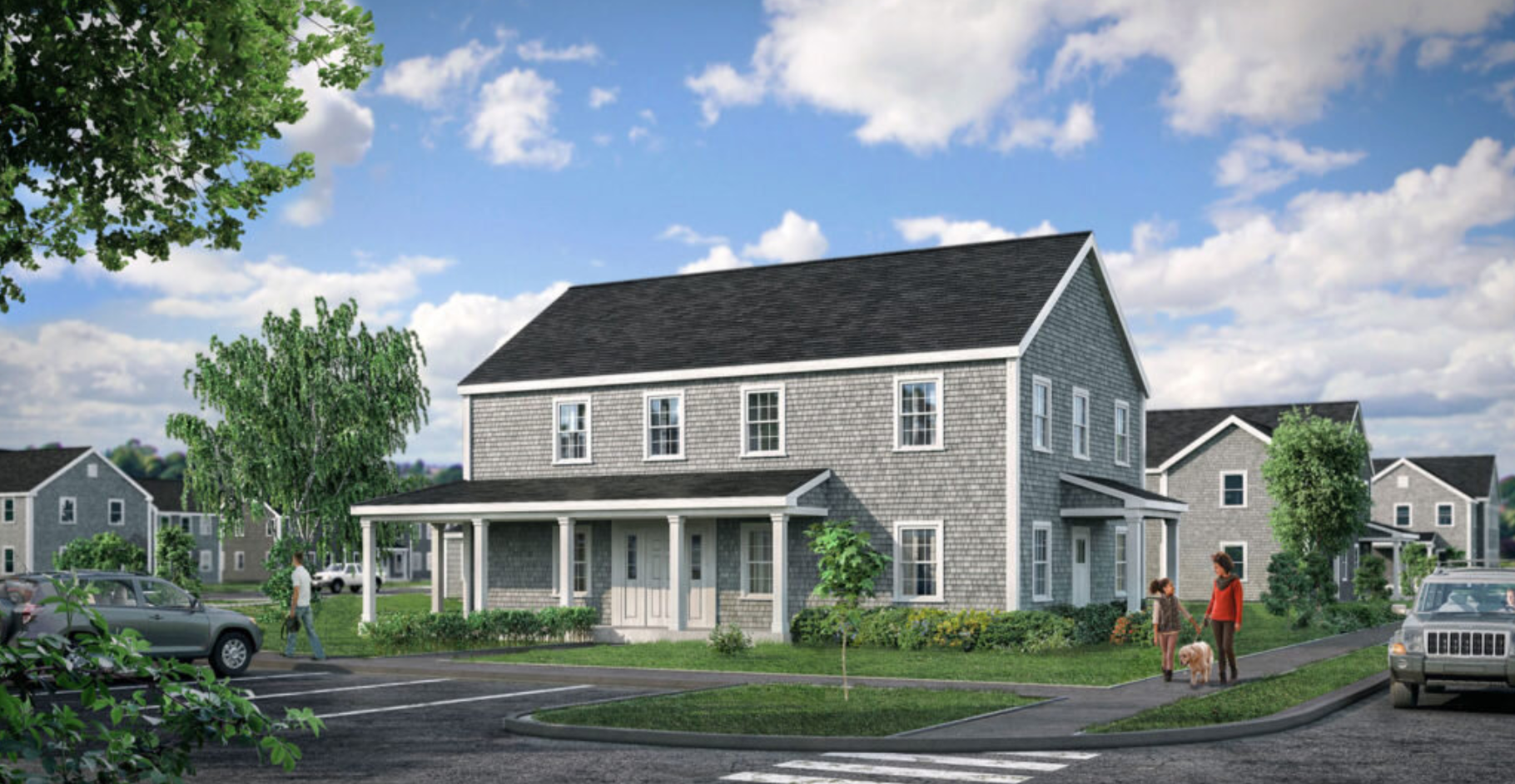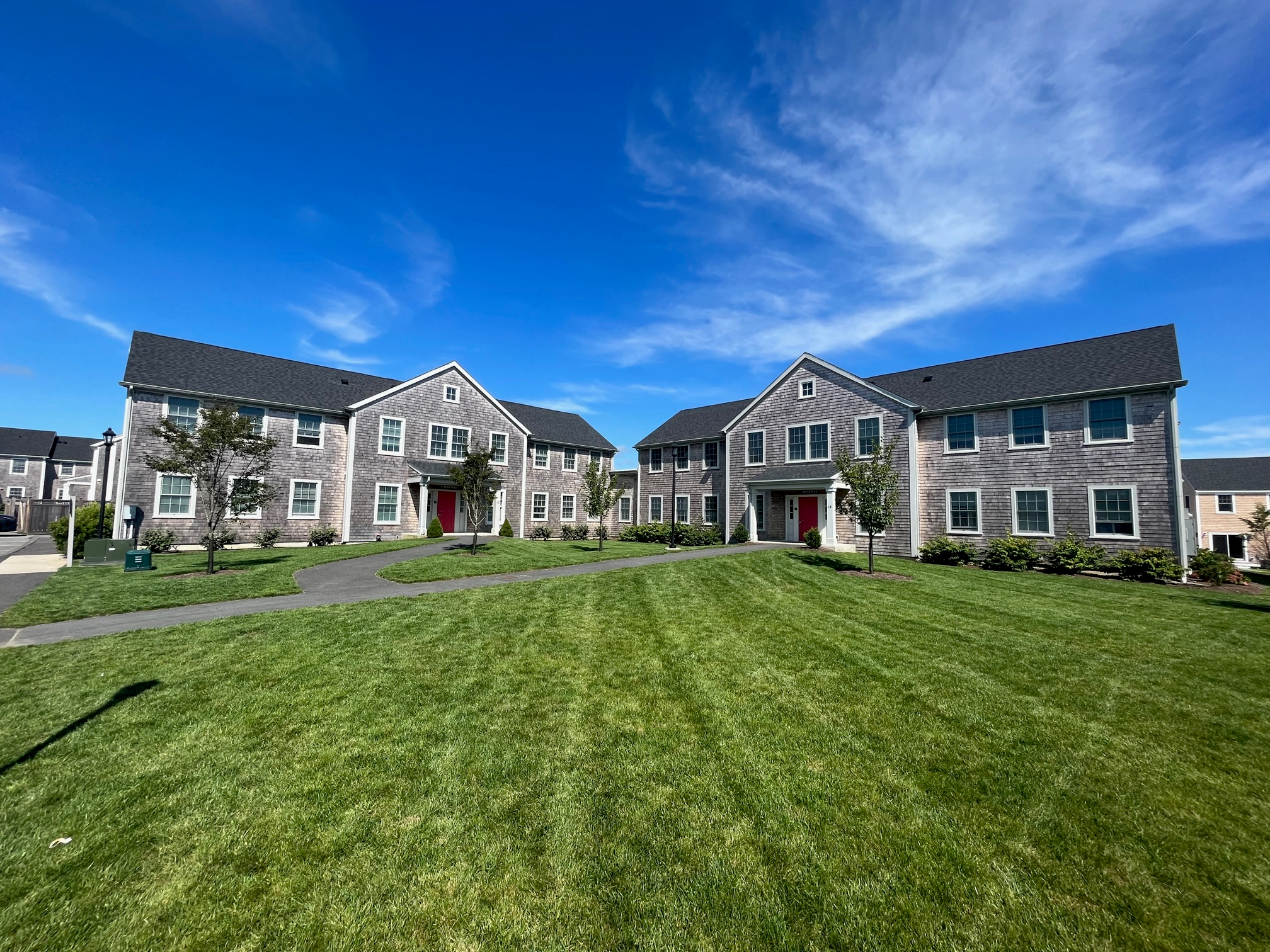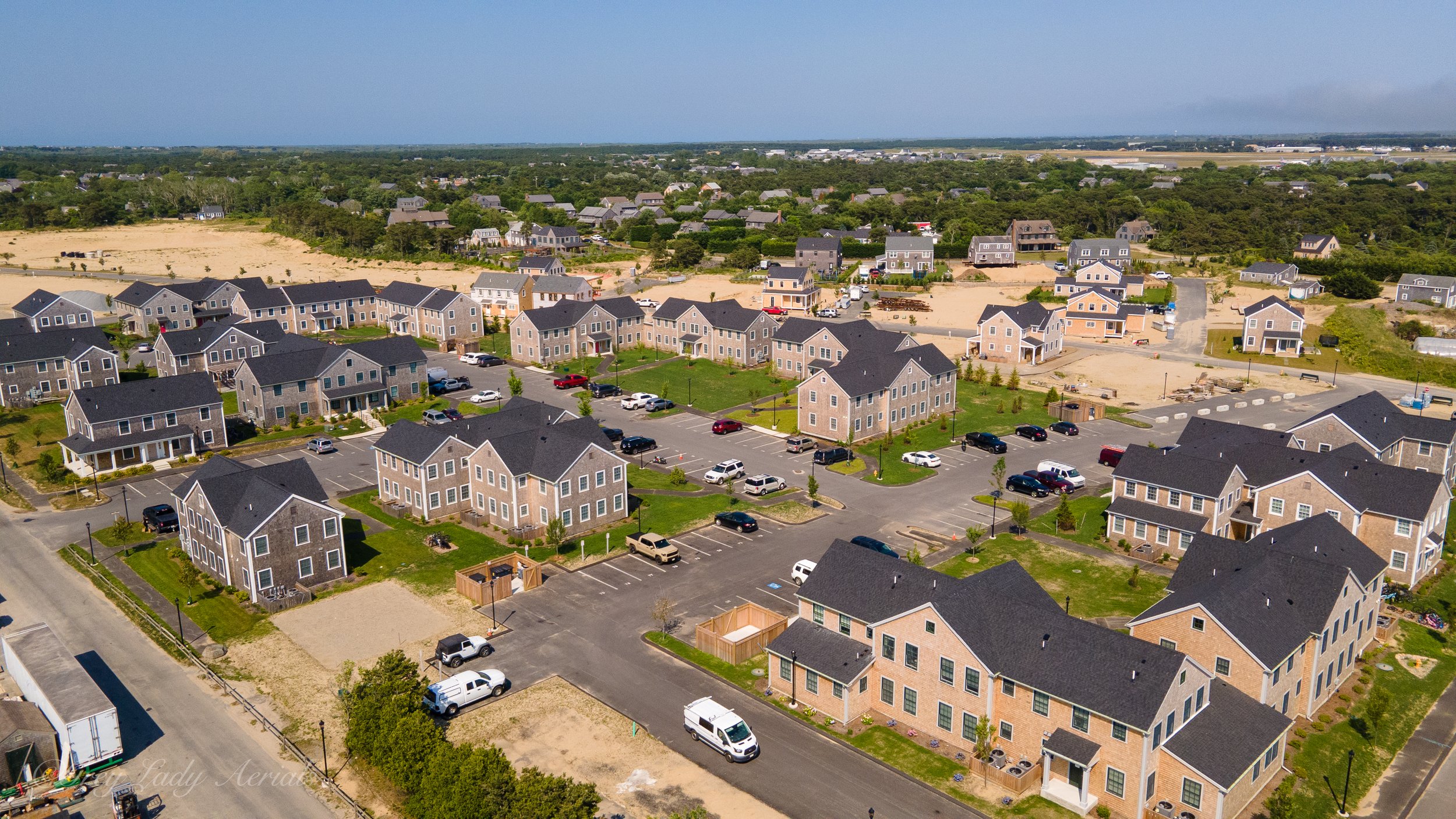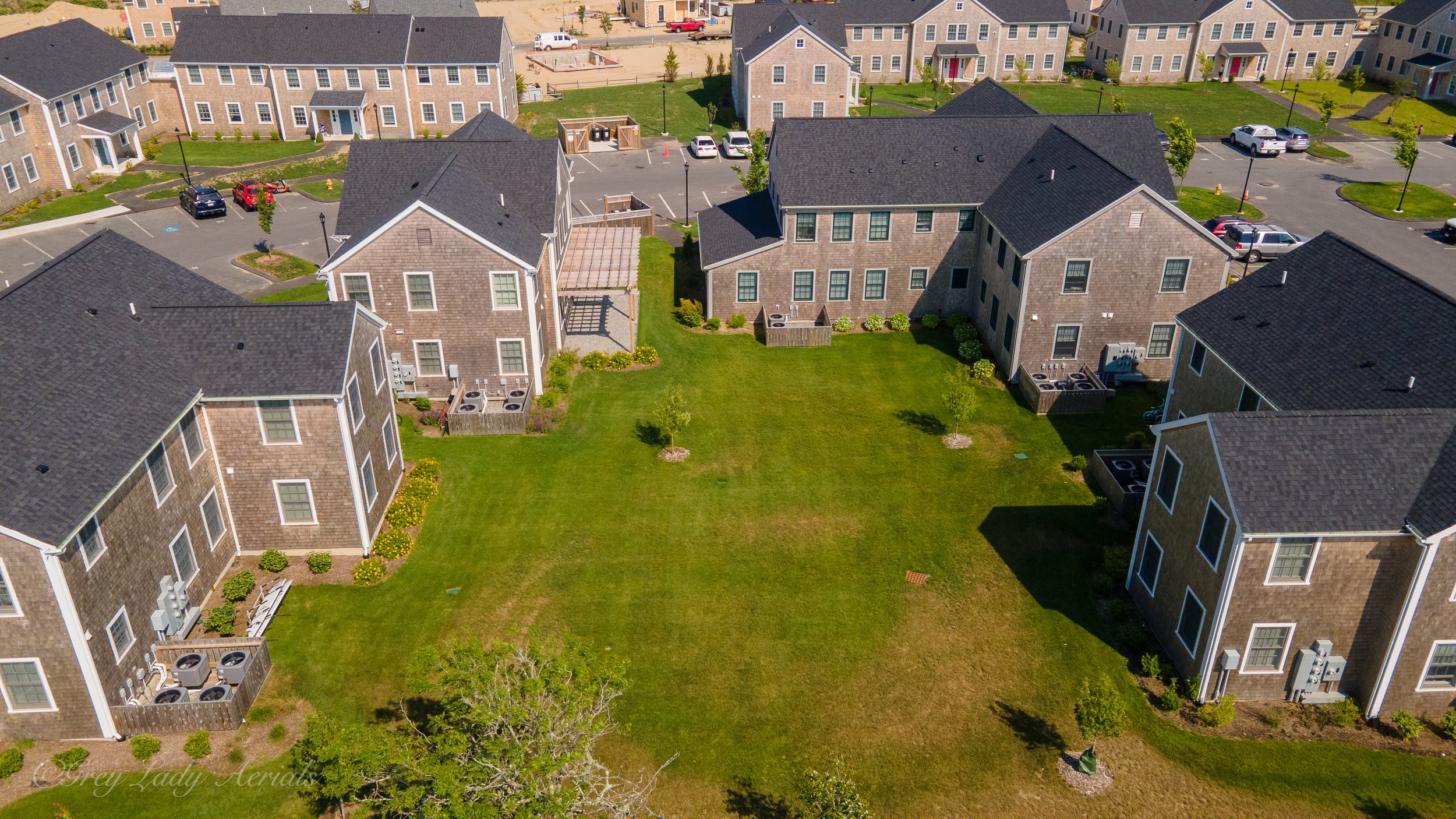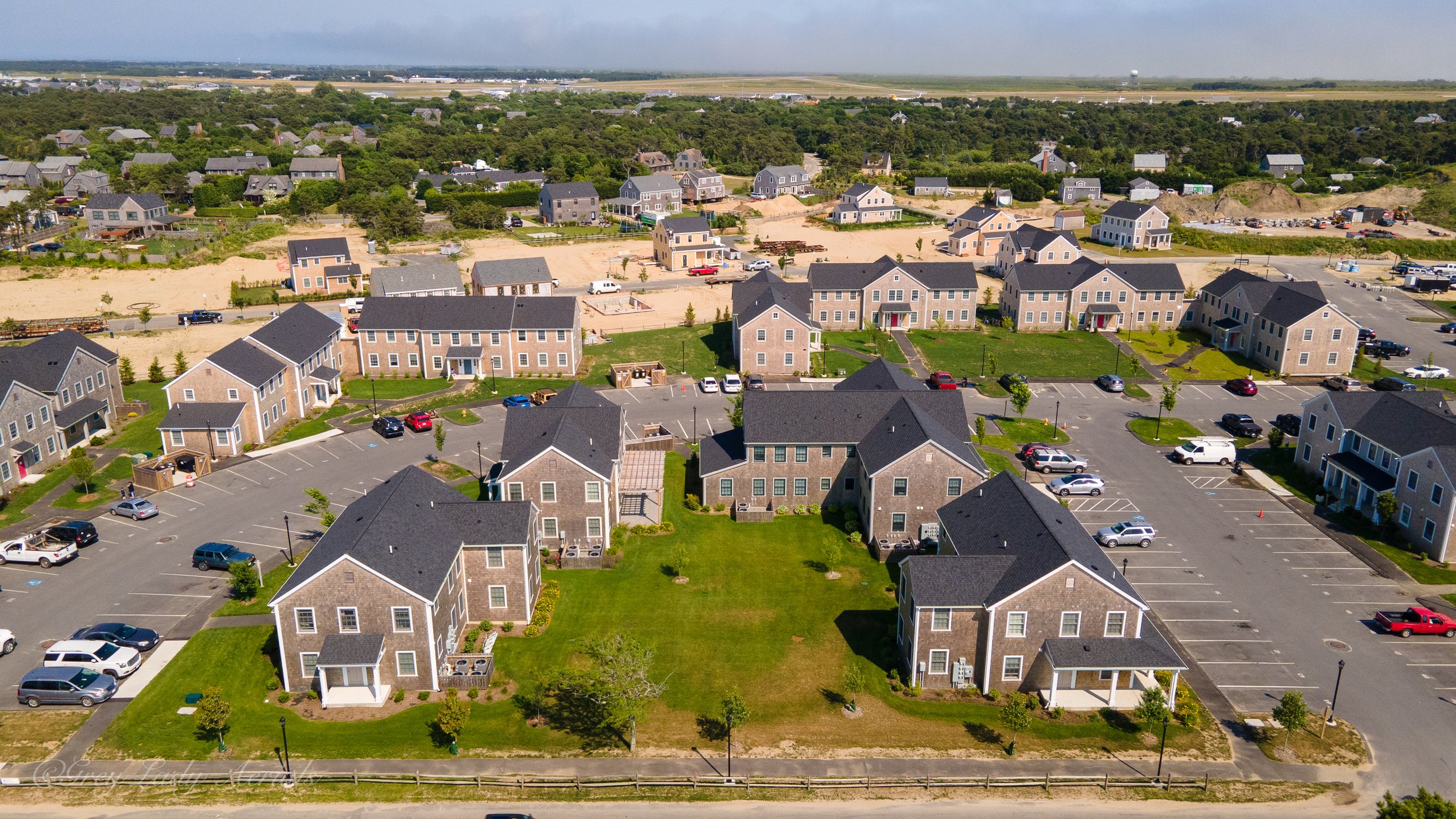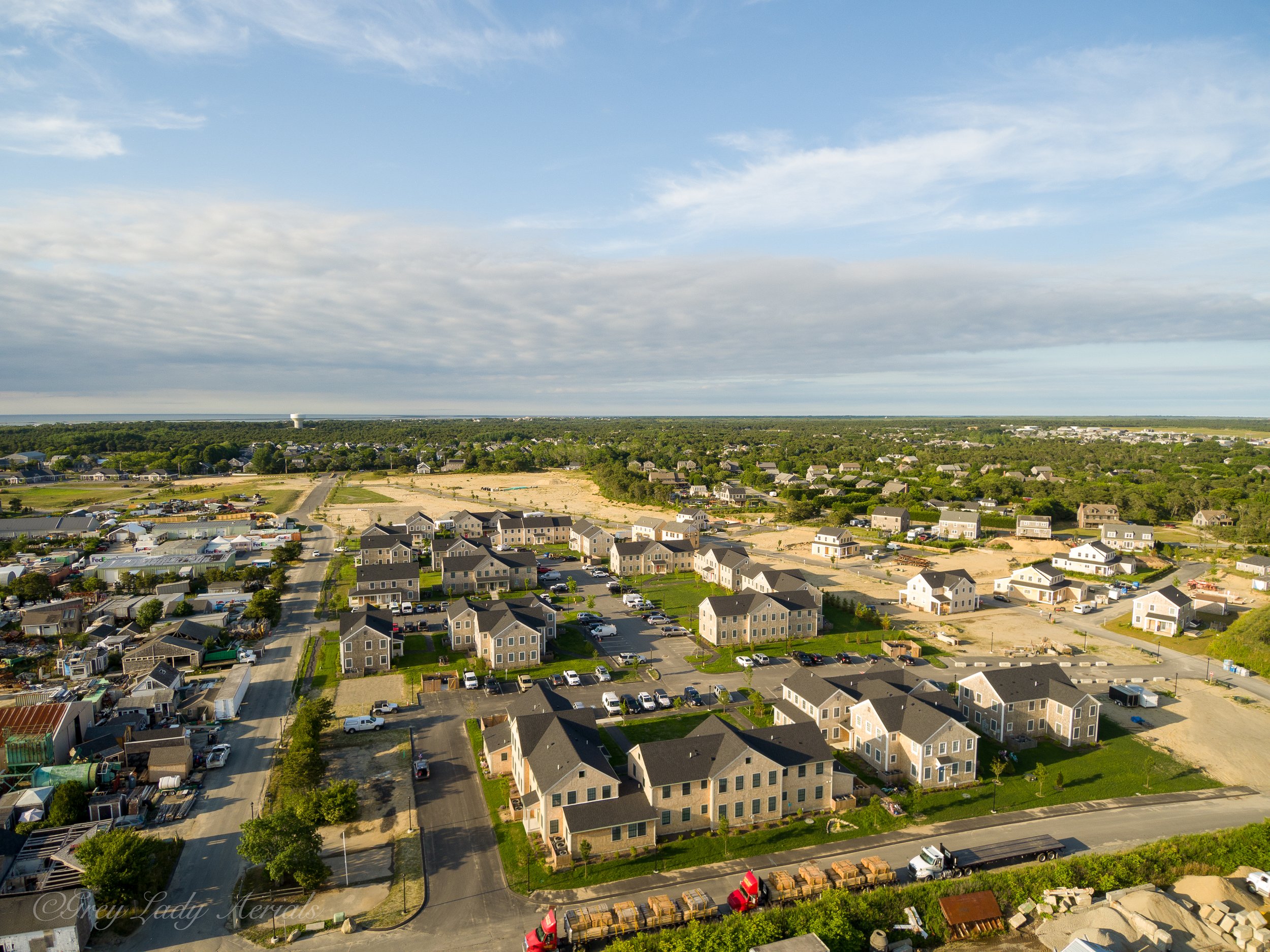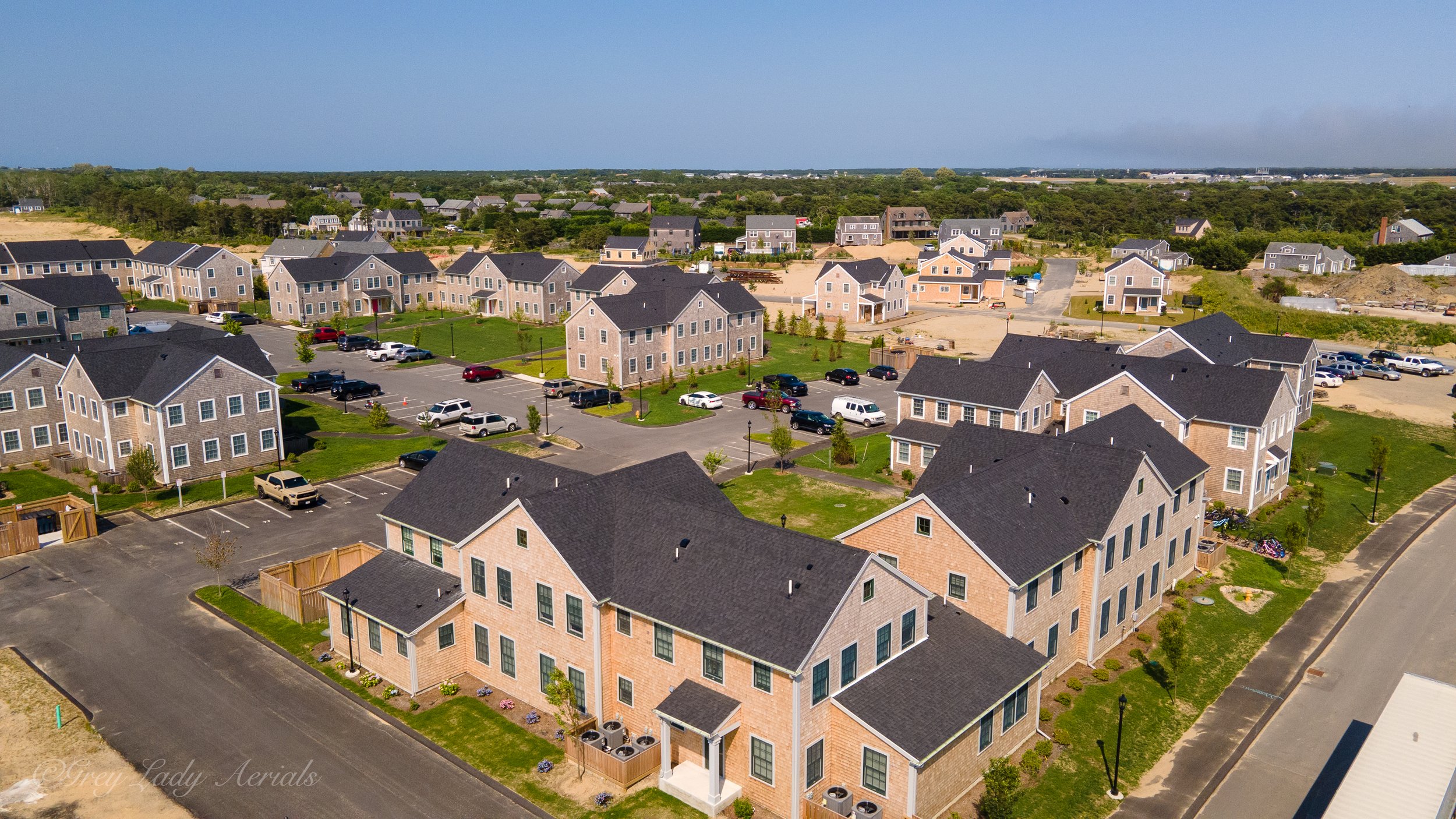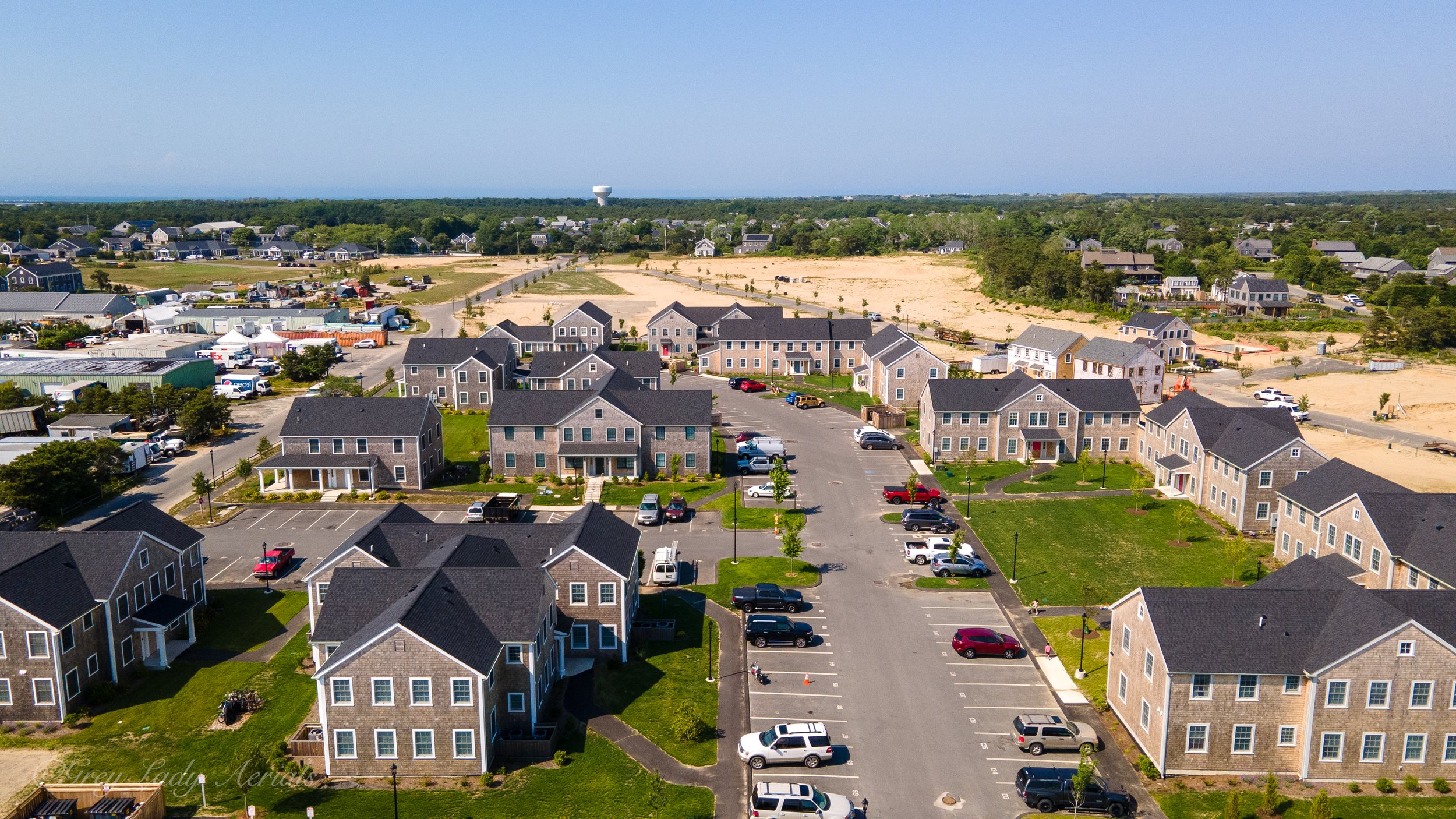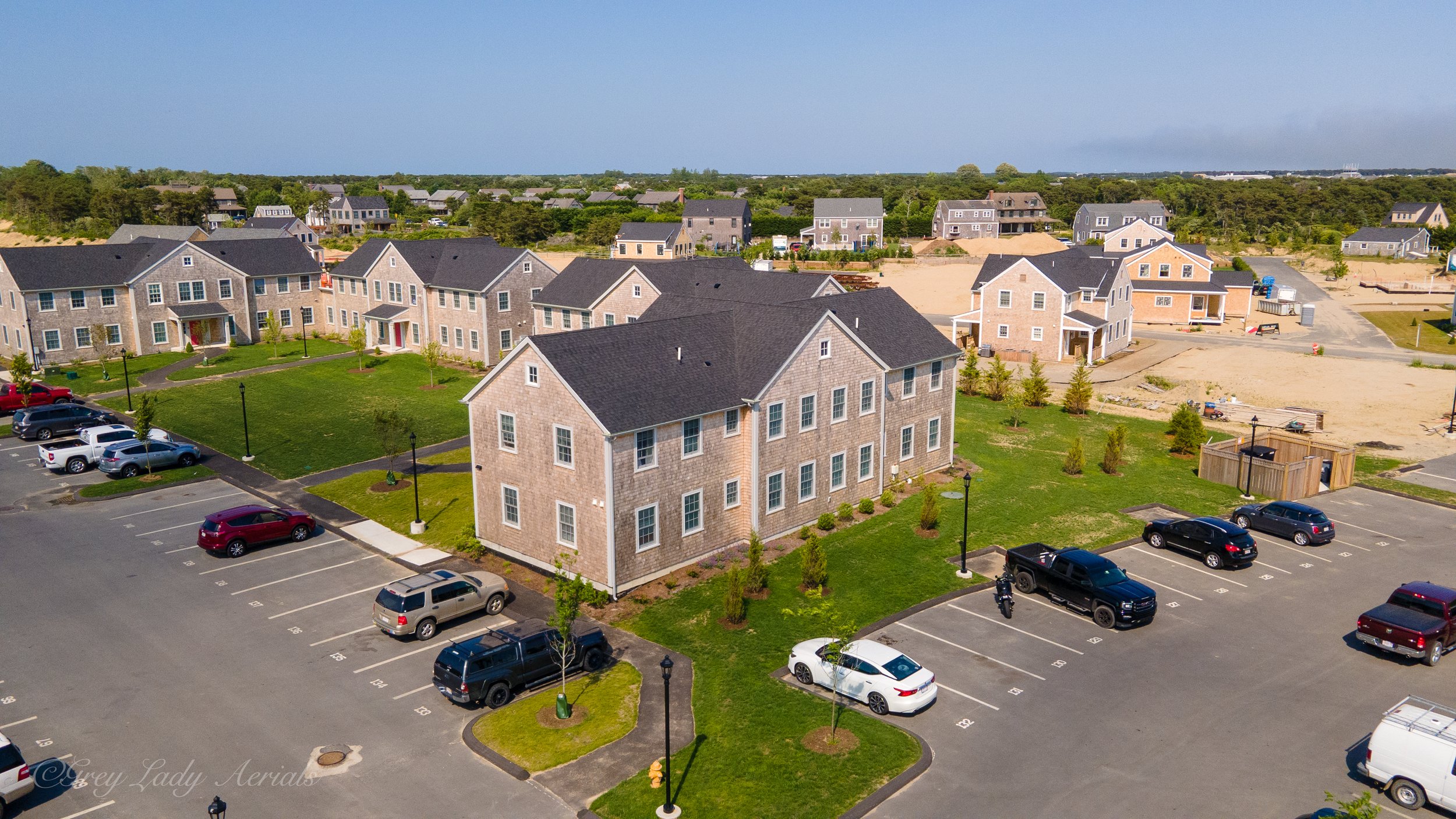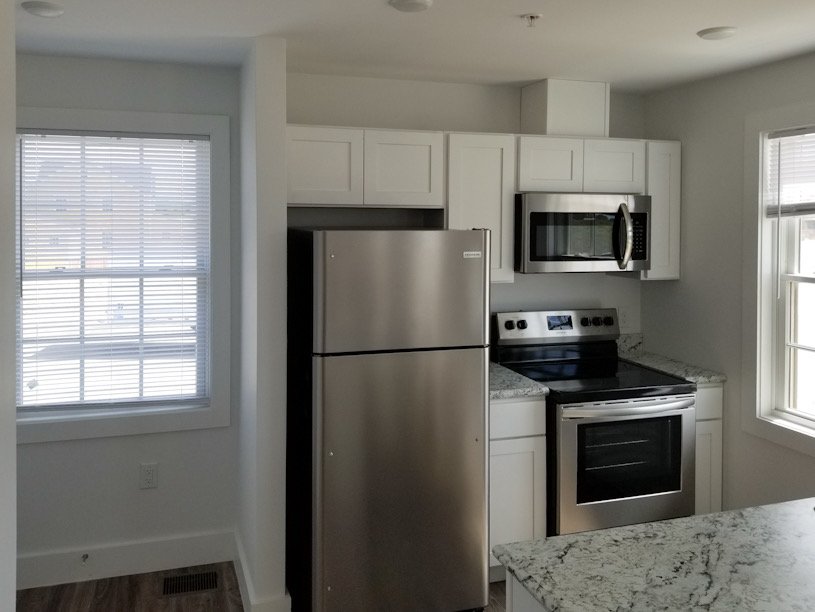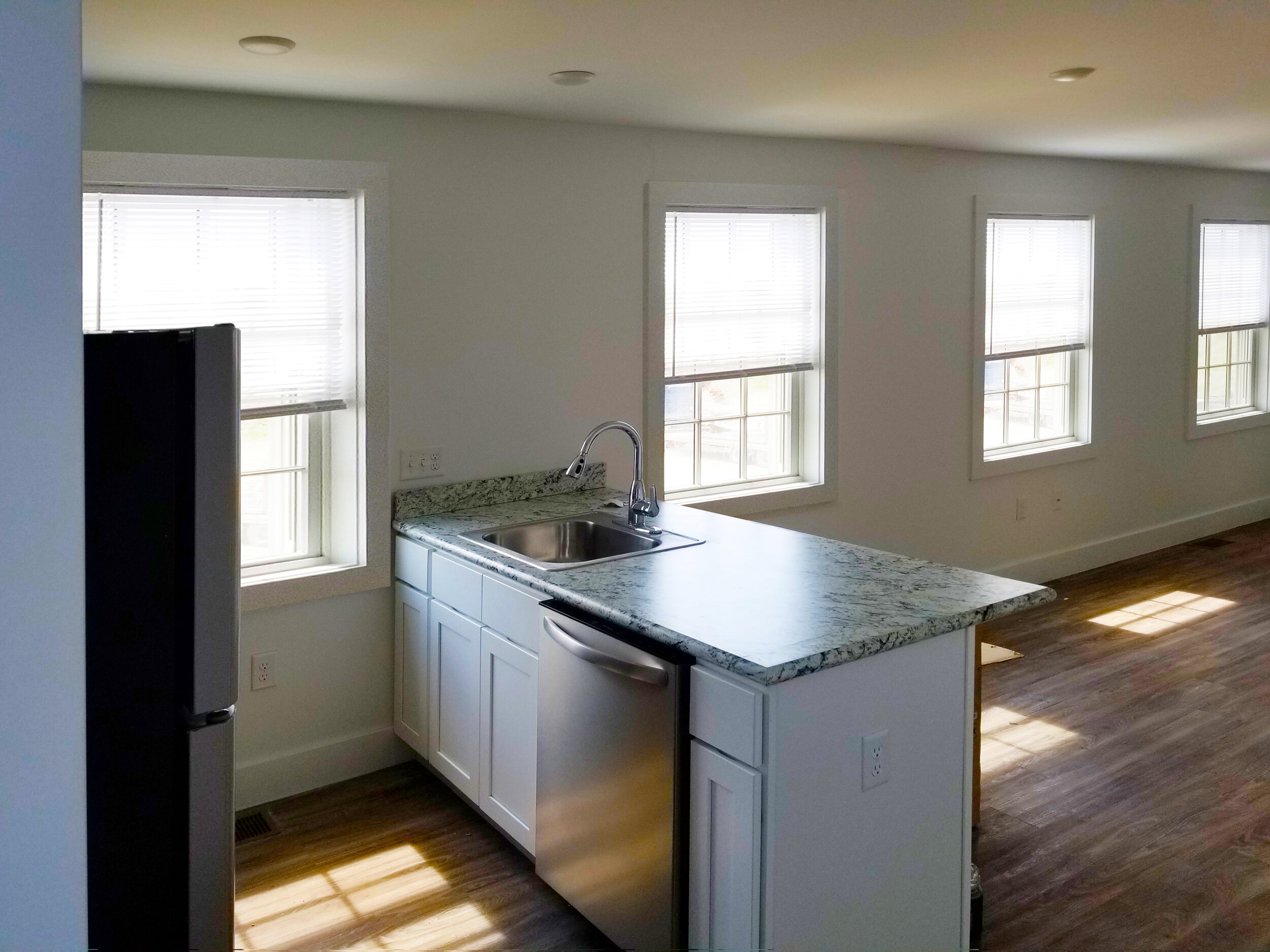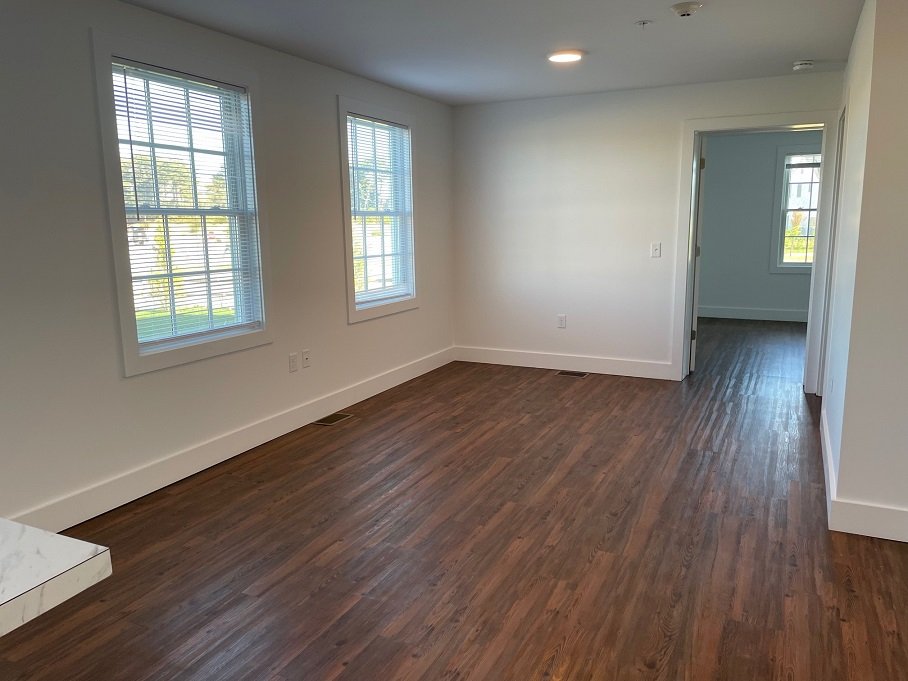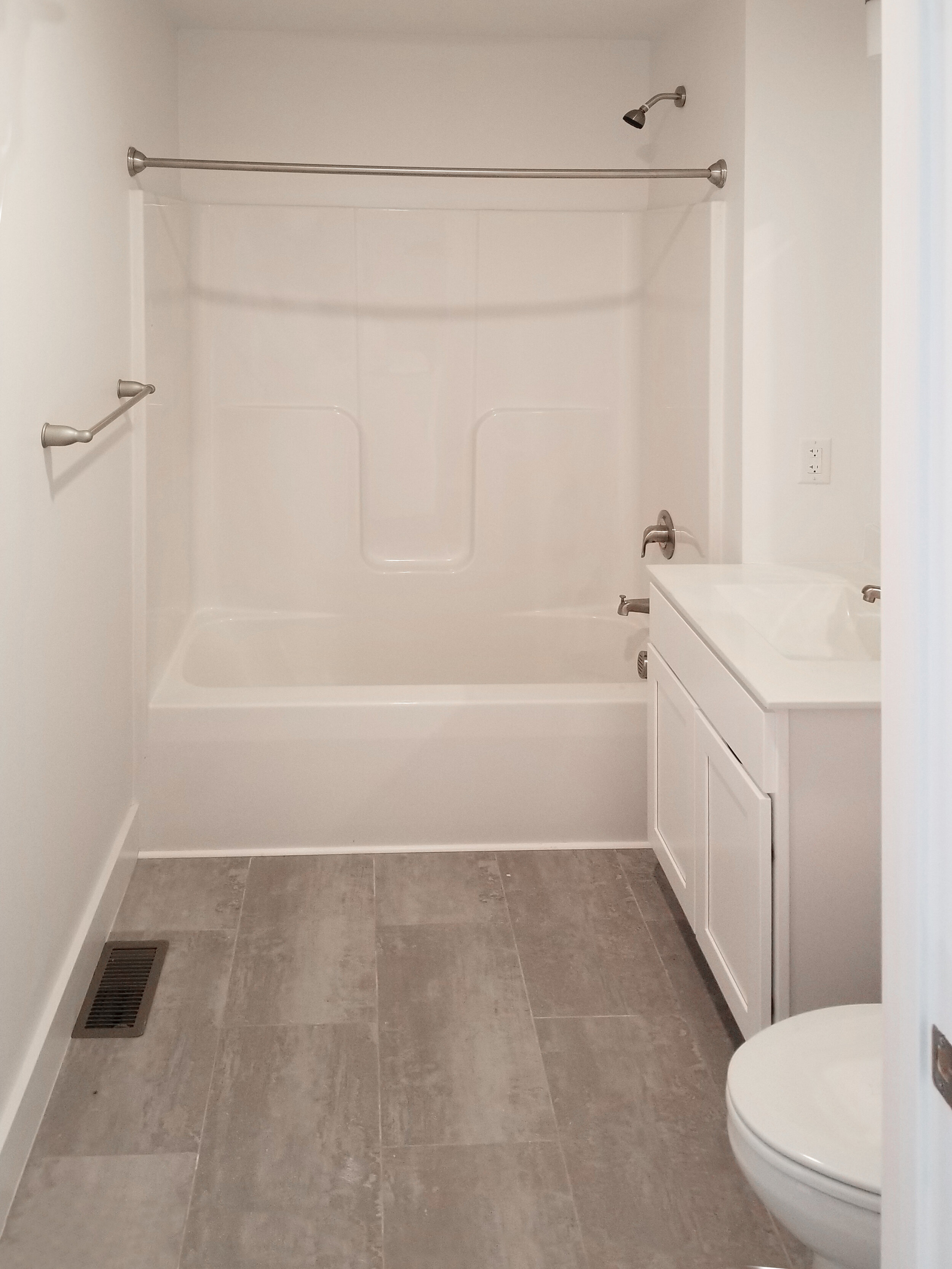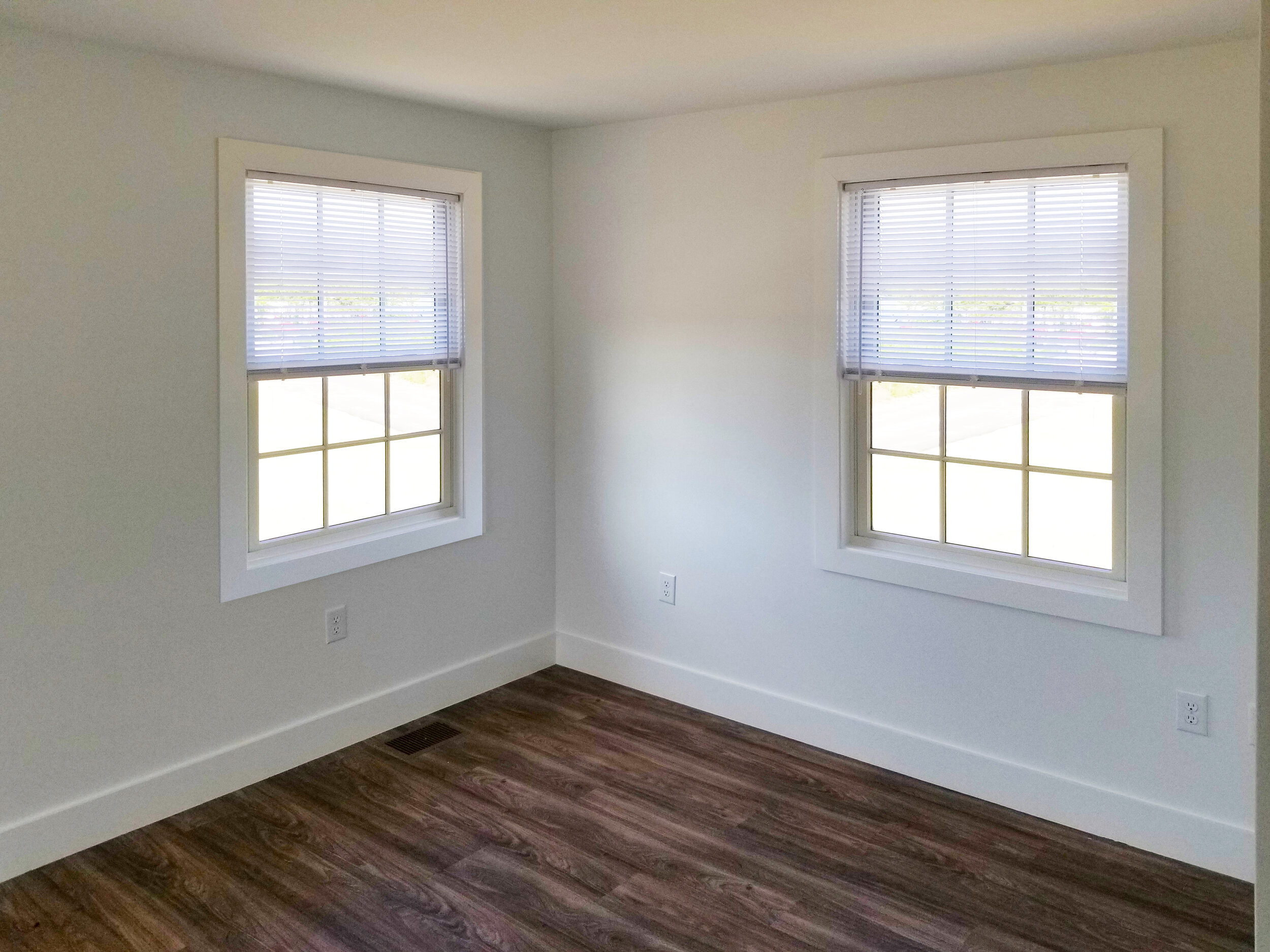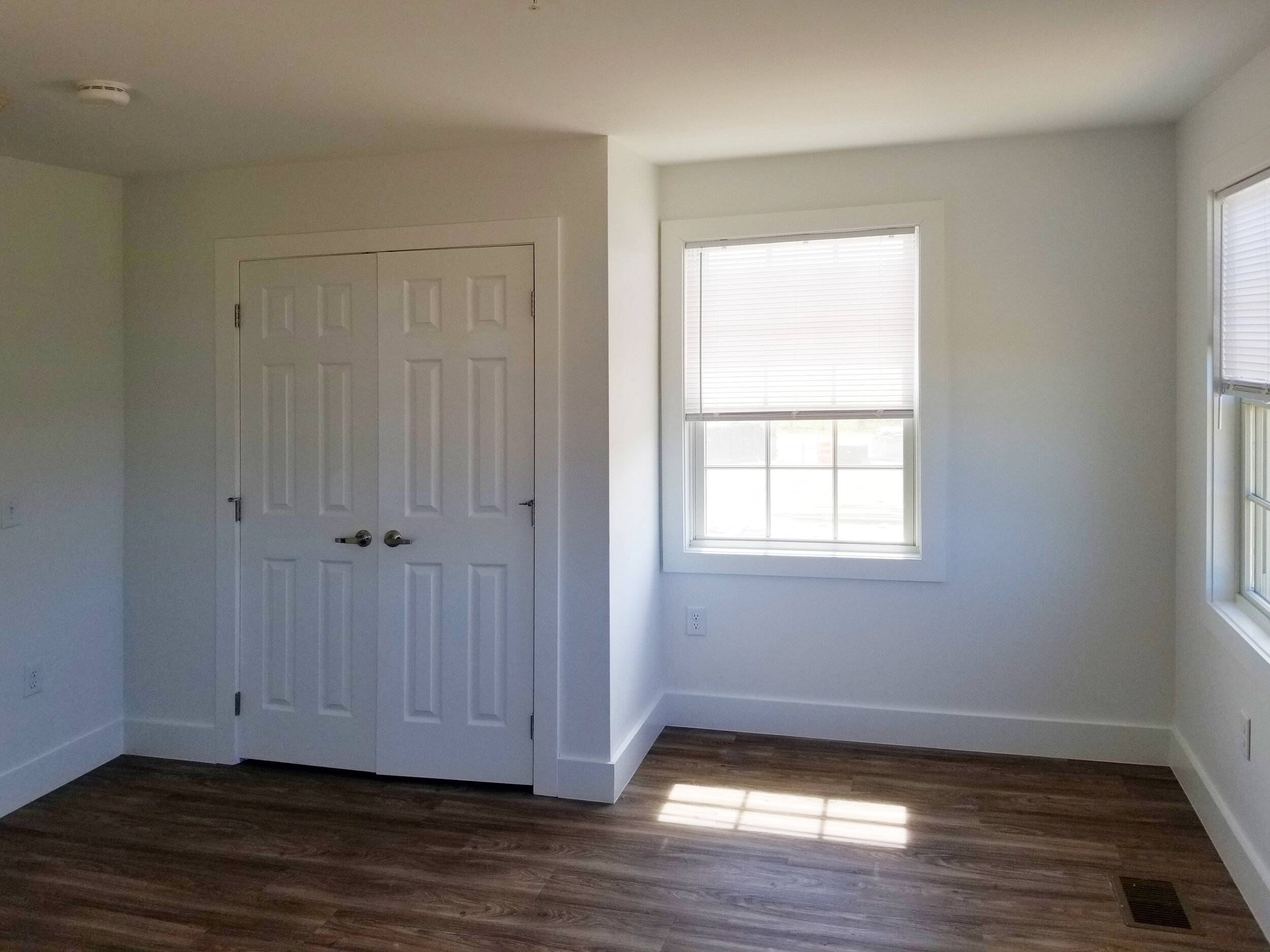nantucket, ma
Meadows II, Phase I:
12.5 acres
14 buildings
98 apartment units
87,470 sq. ft.
The island of Nantucket is designated a National Historic Landmark with inhabitants and visitors who cherish the unique style and cultural history of the island. As the anchor of the island's economy, the tourism and resort industries require a year-round work force; however, affordable and accessible housing for this workforce is in critically short supply. This project was developed to meet this demand, providing residents of Nantucket with quality rental housing.
The Meadows II (Phase I) Apartments Development Project required an intricately detailed logistics plan. Each building module was trucked 350 miles from our Moosic, PA manufacturing facility to New Bedford, MA. From there, the modules were shipped, four at a time, via barge over 60 miles of open ocean. Barges must be accomplished between 6 AM and 7 AM according to a tightly Nantucket-regulated schedule. Once offloaded, the three-mile route to the project site required police escort.
New construction on Nantucket must be engineered to withstand 140 MPH wind-load. While no home is “hurricane-proof,” systems-built housing often outperforms standard residential framing under intense coastal wind conditions.
In all, SBS fabricated and erected over 90% of the sill-plate up portion of the project.
Nantucket is a signatory to the Massachusetts Stretch Energy Green Community Code, which requires optimized building energy performance. This code requires energy conservation performance levels 20% better than the code-mandated ASHRAE Standard 90.1-2007. To achieve this performance, the building fabrication included R-23 rockwool wall insulation, R-49 blown-in cellulose attic insulation, foam-insulated crawl-space walls, DP-50 windows with U.26 energy loss performance. On-site blower door testing is required to validate envelope integrity.
The Stretch Energy Code was developed to improve the energy efficiency of buildings. It is based on the published International Energy Conservation Code (IECC) with an increase in building efficiency requirements and the use of 3rd-party testing and rating of building energy performance.
